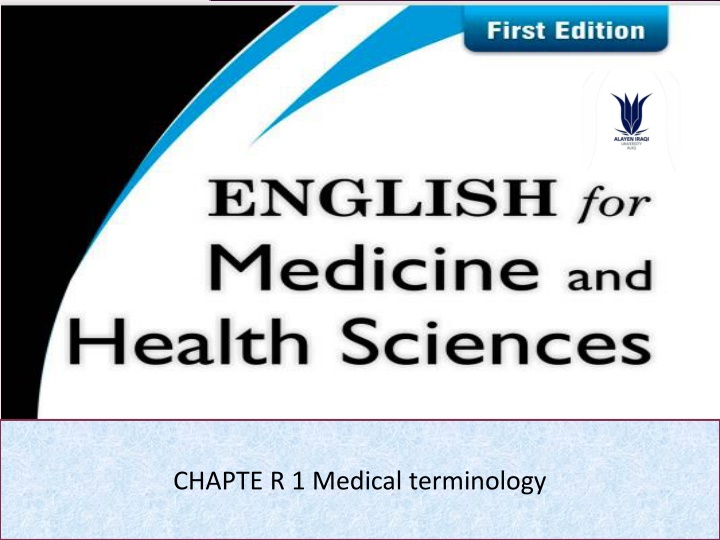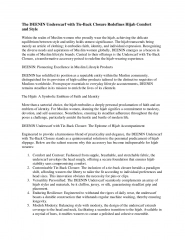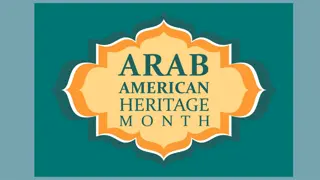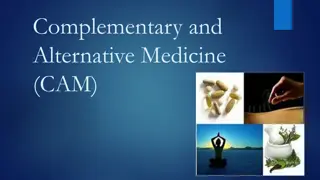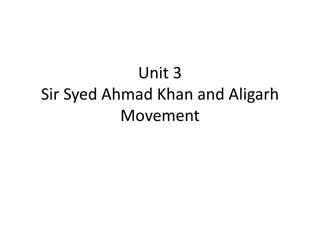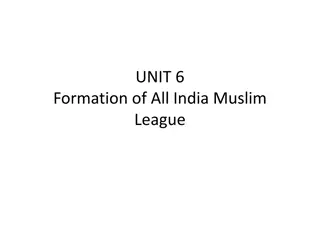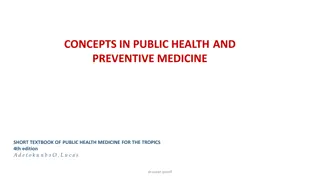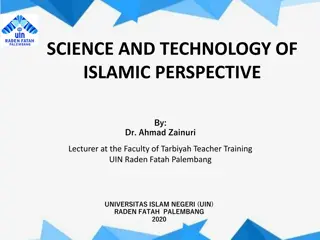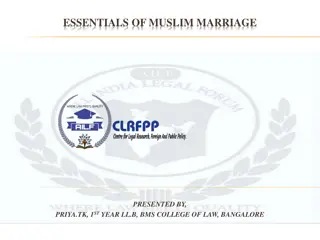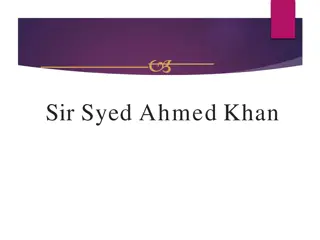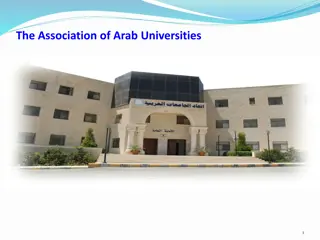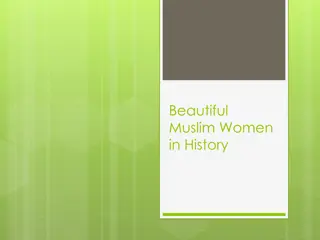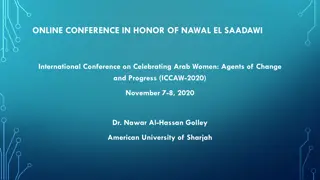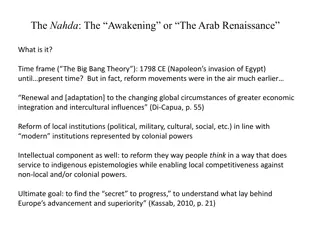Early Arab and Muslim Scholars in Medicine
Delve into the achievements of early Arab and Muslim scholars in the field of medicine. Learn about the pioneering works of Al-Razi and Ibn Sina, their contributions to medical knowledge, and their impact on modern healthcare practices.
Download Presentation

Please find below an Image/Link to download the presentation.
The content on the website is provided AS IS for your information and personal use only. It may not be sold, licensed, or shared on other websites without obtaining consent from the author.If you encounter any issues during the download, it is possible that the publisher has removed the file from their server.
You are allowed to download the files provided on this website for personal or commercial use, subject to the condition that they are used lawfully. All files are the property of their respective owners.
The content on the website is provided AS IS for your information and personal use only. It may not be sold, licensed, or shared on other websites without obtaining consent from the author.
E N D
Presentation Transcript
LIST OF CONTENTS Focus on reading Questions True / false Circle the letter from the correct answers Set by Lect. Dr. Laith &Dr. Asaad Lect. 6
ANSWER THE FOLLOWING QUESTION S 1- Name some early Arab and Muslim scholars. *1/ Al-Razi who known as the Experienced . 2/ Ibn Sina, who also called the Prince of Philosophers , Ibn Sina, better known in the West by his Latin name, Avicenna
2. In which fields did they excel? Al-Razi books, ranging in subject matter from medicine and alchemy to theology and astronomy. About half the books are on medicine, including a well-known treatise on smallpox. Ibn Sina is credited with such personal contributions as recognizing the contagious nature of tuberculosis and describing certain skin diseases and psychological disorders. He also observed that certain diseases can be spread by water and soil, an advanced view for his time.
A. TRUE / FALSE 1- ----False----Al-Razi s encyclopedia had no influence on European medicine. 2- ......True.... Muslim physicians were able to perform complex operations. 3- .....False.... Both Al-Razi and Ibn Sina were Latin by birth. 4- .....False.... Muslim physicians did not know how to perform operations. 5- ......True..... Muslims had outpatient clinics in the tenth century.
B\circle the letter of the correct answer 1. What is an appropriate title for this text? a. Mobile clinics in the Middle Ages. b. The influence of Islamic scientists on modern medicine c. Scientific terms with Arabic roots d. The clinical symptoms of smallpox
2. In the ninth century, Al-Razi, the Experienced, was the first to describe specific symptoms of a disease. This was important because doctors could then. a. write books about it. b. relate it to many eruptive fevers. c. diagnose it and predict its course. d. include them in their dairy
3. Al-Razi wrote an enormous encyclopedia that included medical knowledge from.... a. Greece and India b. Persia and Syria c. his own clinical observations d. all of the above
4. One of Ibn Sinas views that was advanced for his time was that certain diseases ...... a. are spread by water and soil b. are contagious c. can result in loss of weight d. cannot be cured
5. Islamic doctors were especially good in the field of........ a. Psychiatry b. Ophthalmology c. Cardiology d. psychology
6. Ninth-century Muslim hospitals were ........ a. quite similar in organization to modern ones b. quite different in organization from modern ones c. simple tents with all patients placed together d. nonexistent; doctors made house calls instead
7. In the eleventh century, the Muslim solution to caring for patients in remote areas was ........ a. the creation of pharmacies in all small towns and oases b. traveling clinics that moved on the backs of camels c. an emergency service that brought patients to the doctor s house d. hiring doctors forever in those areas
8. The underlined pronoun They (paragraph. 7) refers to ...... a. patients b. Muslim people c. hospitals d. different wards
